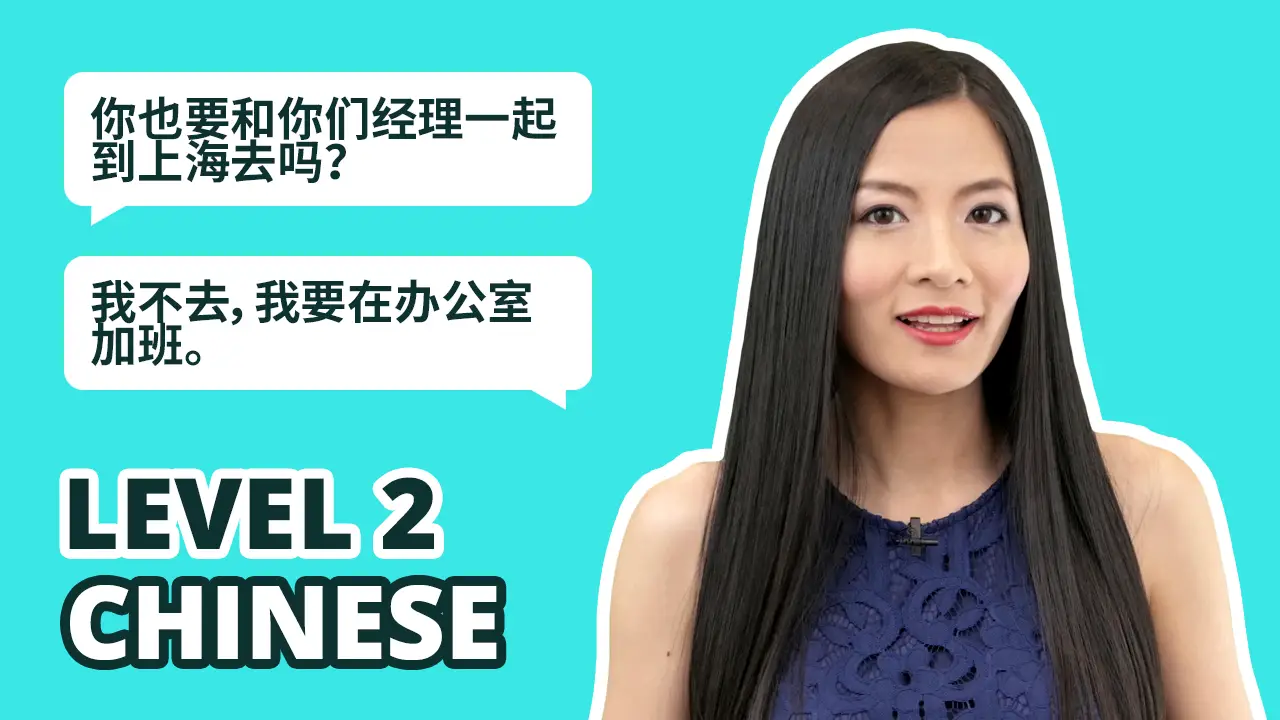Level 2 Lesson 22.1 – Have You Ever Been To That Place Before?
Dynamic / Aspect Particle 过 in Chinese | Dynamic / Aspect Particle 过 vs 了
In today's video lesson we’ll learn about the Aspect Particle 过 in Chinese and compare the Aspect Particle 过 vs 了. We'll also learn about how to use the Suffix 老 and Suffix 小 before one's family name.
- Dynamic / Aspect Particle 过 in Chinese
- Dynamic / Aspect Particle 过 vs 了
- Suffix 老 and Suffix 小 before one's family name
- Three usages of Measure Word 件
VOCABULARY
GRAMMAR
Grammar 1: Dynamic / Aspect Particle 过 in Chinese · HSK 2
An Aspect Particle in Chinese is also known as the Dynamic Particle.
The Dynamic / Aspect Particle 过 is attached to the Verb, to suggest that the action or event is something that has ever happened before. We can use it in this structure:
Subject + Verb 过 ( + Object)
For example,
- wǒ yǐjīng tīngshuō guo nà jiàn shìqing le
我已经听说过那件事情了。
I (have) already heard (about) that "jian" (of) thing. - wǒ yǐqián lái guo zhè ge dìfang
我以前来过这个地方。
I (have) (in the) past ever come to this place.
If we want to say a negative sentence, we can follow this structure
Subject + [没/没有] Verb 过 ( + Object)
For example,
- wǒ hái méi xué guo Pǔtōnghuà
我还没学过普通话。
I (have) yet not ever learned Mandarin. - wǒ méiyǒu zuò guo nà jiàn shìqing
我没有做过那件事情。
I (have) not ever done that "jian" (of) thing.
Grammar 2: Dynamic / Aspect Particle 过 vs 了 · HSK 2
We have learned about the Dynamic / Aspect Particle 了 before, which usually caused confusion with Dynamic / Aspect Particle 过 for many students.
Generally, the main difference is that 过 marks that the action is "something that has ever happened before", while 了 marks that the action "is completed". If we break it down in details, there are mainly three differences.
(1) Verb过 is used for action in the past, while Verb了 can be used for actions in the past, present and in the future.
For example,
- wǒ tīngshuō guo nà jiàn shìqing
我听说过那件事情。
I "have ever" heard (about) that "jian" (of) thing. (-I heard about it i the past) - tā tīngshuō le nà jiàn shìqing huì bù gāoxìng
他听说了那件事情会不高兴。
After hearing *(about) that "jian" (of) thing he will (be) unhappy. (-he has not heard about it yet)
(2) Verb 过, the action or event is something that happened in the past, and it does not last until right now, and verb了, the action or state can last all the way until present.
For example,
- tā qù guo nà ge dìfang
她去过那个地方。
She "has ever" gone to that place. (-the visit was something that has ever happened in the past) - tā qù le nà ge dìfang
她去了那个地方。
She went to that place. (-the action of "going there" has been completed, but she might still be there)
(3) Verb 过 does not mean there is a result because the action happened, but verb 了, there is definitely a result.
For example,
- wǒ xué guo Pǔtōnghuà
我学过普通话。
I "have ever" learned Mandarin. (-not necessarily know how to speak it) - wǒ xué le Pǔtōnghuà
我学了普通话。
I learned Mandarin. (-so now I know how to speak it)
Grammar 3: Suffix 老 and Suffix 小 Before One's Family Name · HSK 2
When casually addressing people in Chinese, we can put the Suffix 老 and Suffix 小 before one's family name.
Usually, 老 is for people who are noticeably older, more senior and/or more superior than us. While 小 is for people who are noticeably younger, junior and/or inferior than us.
Both Suffix 老 and Suffix 小 can be used among friends, acquiesces and coworkers. However, when used among work place, it suggests that the situation is relaxed, informal and has some personal touch.
Also an entry-level employee might call their direct superior 老X, and the direct superior might call the entry-level employee 小X. The President/CEO of the company might also call an entry-level employee 小X, however, the same entry-level employee almost never get to call the President/CEO 老X.
Grammar 4: Three Usages of Measure Word 件 · HSK 2
Up til this lesson, we have learned three usages of Measure Word 件. It can be used as the Measure Word for:
- clothing: yí jiàn yīfu 一件衣服
- gift and present: yí jiàn lǐwù 一件礼物
- matter, thing, affair, and incident: yí jiàn shìqing 一件事情
2 Comments
Leave a Reply
You must be logged in to post a comment.

张远:你去过上海没有?
我:我去过上海。很久以前我住在上海。
张远:真的吗?我也住过在上海。
我:真的。你听说了上海菜没有?
张远:我已经吃了好多上海菜。
我:我在那儿开始工作。但是上海的生活太忙。
张远:我住了在上海二年了。所以很多事情我没做过
Are 事情 and 东西 interchangeable?